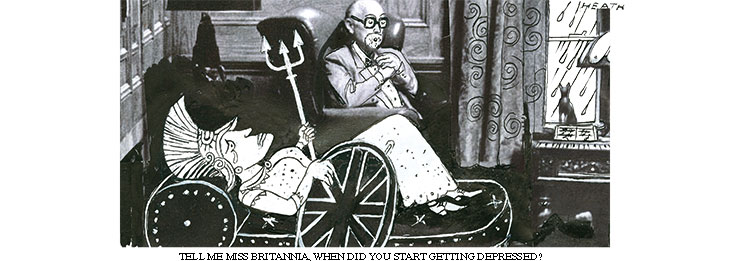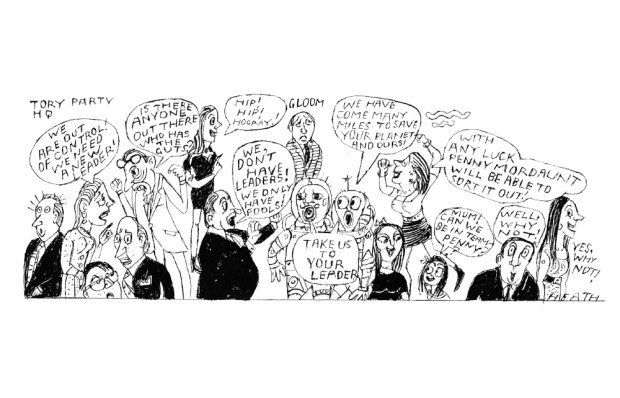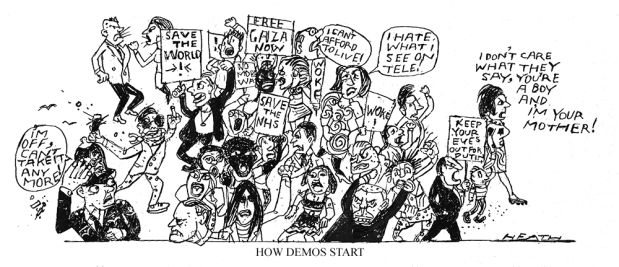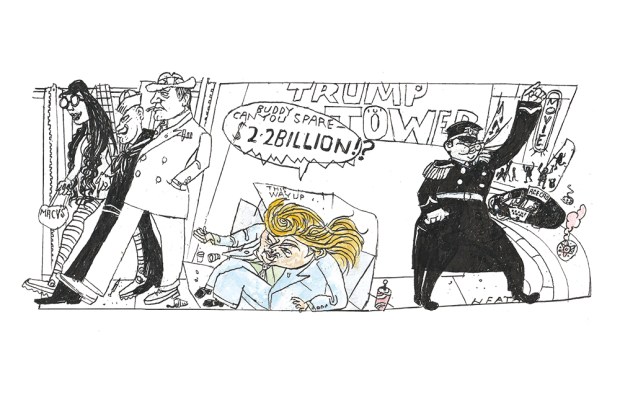Home
In a television debate Boris Johnson, the Prime Minister, was jeered by the studio audience when he was asked about the importance of truth and Jeremy Corbyn, the leader of the opposition, was jeered when he refused nine times to say whether he thought Britain should leave the EU. Neither dealt a knock-out blow and polls ranked them as neck and neck. The Liberal Democrats failed in an appeal to the High Court to include their leader Jo Swinson in the debate. But polls by YouGov indicated that the more voters saw of Miss Swinson, the less they liked her. Labour promised everyone free internet broadband, by nationalising Openreach and other parts of BT. Mr Johnson, in a speech to the Confederation of British Industry, announced that the Conservatives would not after all cut corporation tax from 19 per cent to 17 per cent, because the government needed to spend on public services the £6 billion saved. Mr Corbyn told the same conference: ‘If a Labour government is elected on 12 December you’re going to see more investment than you ever dreamed of.’ The Green party promised in its manifesto to spend £100 billion a year to reach carbon neutrality by 2030.
The Duke of York did a television interview from Buckingham Palace with Emily Maitlis to deny allegations that he had had a sexual encounter with Virginia Roberts-Giuffre in 2001 when she was 17 and was being exploited by Jeffrey Epstein, the convicted sex offender found dead in his New York cell on 10 August. She had said the Duke was sweating, but he explained: ‘I didn’t sweat at the time because I had suffered what I would describe as an overdose of adrenalin in the Falklands War when I was shot’, and in any case, on the day in question, he had taken his children to Pizza Express in Woking, which was ‘a very unusual thing for me to do’. Jamie Oliver, whose British restaurant business went into administration this year, is to open 21 restaurants abroad in 2020.
Julian Assange, who has been living in Belmarsh prison since his eviction from the embassy of Ecuador in London, learnt that the investigation by Swedish authorities of an allegation of rape against him had been dropped; he still faces an extradition request from the United States on 18 counts relating to the mass leaking of American secrets. Jose Mourinho replaced Mauricio Pochettino as head coach of Tottenham Hotspur. Kew Gardens identified the genetic component in trees resistant to ash dieback.
Abroad
In Hong Kong the confrontation between police and protesters demanding universal suffrage grew more grave when police surrounded the Polytechnic University with hundreds of people inside, attempting to arrest those who left. On one day the police said they had used 1,458 tear gas canisters and 1,391 rubber bullets. Simon Cheng, a former employee of the British consulate in Hong Kong, said that he had been tortured while detained for a fortnight in mainland China in August. President Sebastián Piñera of Chile offered a new constitution to replace the one put in place in 1980 under Pinochet, in the face of a month of protests in which 22 have been killed and more than 2,300 injured. In Iran more than 100 were killed in protests against a sharp rise in petrol prices. In France gilets jaunes protesters marked the first anniversary of their demonstrations. In Spain millions of mobile phone users had their whereabouts monitored for a week by the National Statistical Institute, with the cooperation of service providers.
Mike Pompeo, the US Secretary of State, announced: ‘The establishment of Israeli civilian settlements is not, per se, inconsistent with international law.’ This brought to an end four decades of policy that had endorsed the UN position that Jewish settlements in the occupied West Bank were illegal under international law. Public hearings in the impeachment inquiry by the House of Representatives into President Donald Trump continued. Scientists at Penn State University experimented with a non-stick lavatory designed to require less water to flush.
In Afghanistan the Taleban freed Kevin King, an American, and Timothy Weeks, an Australian, university academics kidnapped in Kabul three years ago, in exchange for three imprisoned Taleban figures, including Anas Haqqani. Dutch authorities found 25 stowaways alive in a refrigerated container on a ferry bound
for Britain. A million condoms distributed by Marie Stopes Uganda were found to have holes in them. CSH
Got something to add? Join the discussion and comment below.
Get 10 issues for just $10
Subscribe to The Spectator Australia today for the next 10 magazine issues, plus full online access, for just $10.
You might disagree with half of it, but you’ll enjoy reading all of it. Try your first month for free, then just $2 a week for the remainder of your first year.














Comments
Don't miss out
Join the conversation with other Spectator Australia readers. Subscribe to leave a comment.
SUBSCRIBEAlready a subscriber? Log in